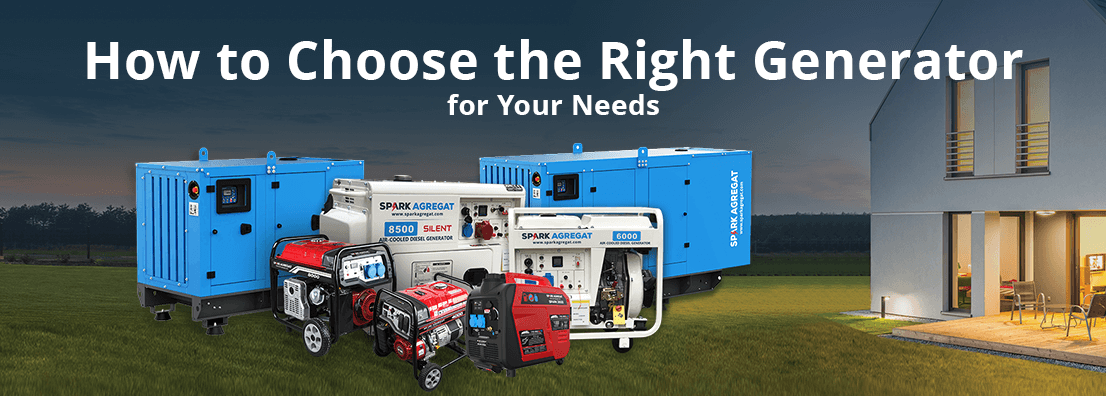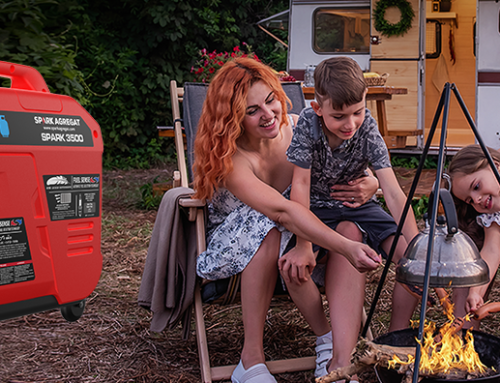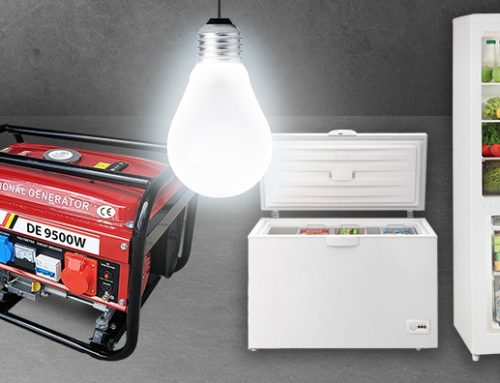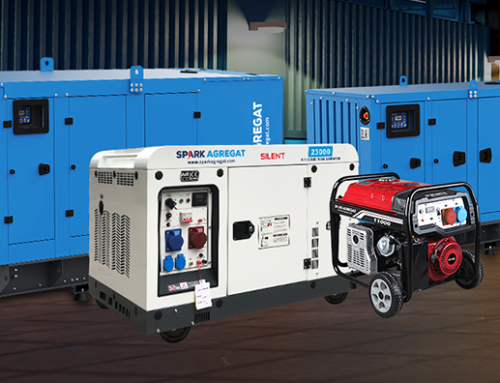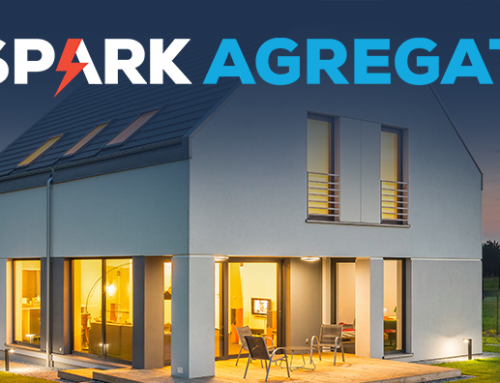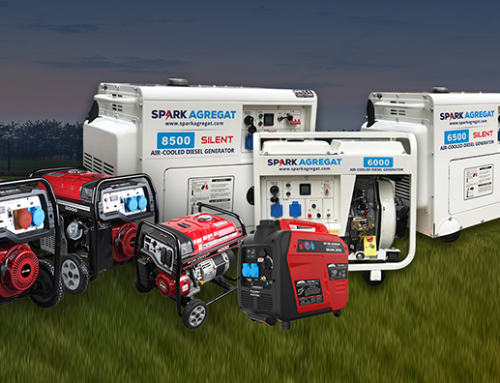Inconveniences from power outages can be severe, especially if you depend on energy for important duties. A reliable generator is a crucial piece of equipment, whether it’s used to power a remote construction site during a storm or to keep the lights on at home. SparkGenerators specializes in offering top-notch generators to suit all of your power requirements.
As was already noted, generators are a necessary component of contemporary living. In times of blackouts or in places without access to the electrical grid, they offer backup power. Generators can be utilized for outdoor activities or as a source of energy independence in addition to offering safety and comfort during crises.At
We, SparkGenerators, have extensive knowledge of the generator market. We take great pleasure in our knowledge and dedication to customer satisfaction. We offer a wide selection of generators from the leading companies in the sector and can offer professional guidance on picking the ideal generator for your needs.
In this buying guide, we’ll give you a thorough rundown of all the important things to take into account when selecting a generator, such as power output, fuel type, runtime, mobility, and noise level. We will also discuss the various generator kinds that are available, including diesel generators, inverter generators, standby generators, and portable generators. By the end of this article, you will know exactly how to select the best generator for your requirements and feel confident about your choice.
At SparkGenerators, we are focused on providing our clients the best generators possible along with top-notch customer support. We are here to assist you at every stage of the process since we recognize that choosing the best generator might be a difficult undertaking. Now let’s get started on the important aspects to take into account while choosing a generator!
Power Output
One of the key elements to take into account when choosing a generator is its power output. The kinds of tools and appliances that the generator can power will depend on its power output, which is expressed in watts.
Explanation of Wattage Requirements for Different Applications
It’s important to understand the wattage needs of the items and appliances you’ll be using before choosing a generator. While some items, like air compressors and welders, require significantly higher wattages, others, like refrigerators and lights, require relatively low wattages.
Here are a few instances of common wattage needs for various applications:
Refrigerator: 600-800 watts
Microwave: 1,000-1,200 watts
Television: 200-400 watts
Air conditioner: 1,500-3,500 watts
Circular saw: 1,500-2,500 watts
Air compressor: 1,000-6,000 watts
Welder: 2,500-10,000 watts
By adding up the wattage requirements of the appliances and tools you will be powering, you can determine the minimum power output you will need from your generator.
Comparison of Different Generator Sizes
Little portable generators and big backup generators are only two examples of the various sizes of generators. The maximum wattage production and runtime of the generator are governed by its size. A short comparison of the various sizes is shown below:
- Small portable generators: These generators are perfect for powering small appliances and tools because they typically produce 1,000–4,000 watts of power. They are a well-liked option for camping trips and outdoor gatherings because they are lightweight and simple to store.
- Mid-size portable generators: These generators can run larger tools and appliances and typically produce 4,000–8,000 watts of power. They can be used for both domestic and professional purposes and are still fairly portable.
Big portable generators are perfect for powering heavy equipment and appliances on construction sites as well as providing emergency backup power for residential residences. These generators normally produce 8,000–12,000 watts of power.
- Standby generators: Installed permanently, these generators offer backup power to your house or place of business during power outages. They are perfect for corporations and large residential homes because they can produce up to 50,000 watts of power.
It’s crucial to choose a generator that will be both powerful enough to meet your needs and portable enough to satisfy those needs. To fulfill all of your power needs, SparkGenerators offers a broad range of generator sizes.
Fuel Type
The fuel type of a generator is another important factor to consider when selecting a generator. Different fuel types have their own pros and cons, and the choice of fuel type will depend on your specific needs and preferences.
- Analysis of Gasoline, Diesel, Propane, and Natural Gas Benefits and Disadvantages
- Gasoline: The most popular and widely accessible type of generator is one fuelled by gasoline. They typically cost less than other generator kinds and are simple to refuel. Yet gasoline has a limited shelf life and can be challenging to store for extended periods of time. Also, compared to other generator types, gasoline-powered generators are typically louder and produce more pollution.
- Diesel: Diesel-powered generators last longer and use less fuel than gasoline-powered counterparts. They also produce less pollution and are quieter. Diesel fuel, on the other hand, is frequently more expensive than gasoline, and diesel generators might be more expensive to buy initially.
- Propane: Compared to generators fueled by gasoline or diesel, propane-powered generators burn cleaner and produce less emissions. Compared to gasoline, propane is easier to store and has a longer shelf life. Generators that run on propane can, however, be more expensive than generators that run on gasoline, because propane is less accessible than gasoline.
- Natural gas: Natural gas-powered generators are the most eco-friendly alternative because they produce the fewest emissions of any generator type. Furthermore easily accessible and having a long shelf life is natural gas. Natural gas-powered generators, however, can be pricey to buy and install, and they might not be accessible everywhere.
Explanation of Fuel Consumption and Cost
It’s crucial to think about fuel usage and cost while choosing a generator. The amount of gasoline used by a generator will influence how long it can operate on a single tank, and the price of fuel will impact the generator’s long-term operating costs.
For various fuel kinds, below are some rough estimations of fuel usage and price per hour in euros:
Gasoline: 1.9-3.8 euros per hour, with a consumption of 1.9-3.8 liters per hour
Diesel: 2.9-4.8 euros per hour, with a consumption of 1.1-2.3 liters per hour
Propane: 1.9-2.9 euros per hour, with a consumption of 0.5-1 liter per hour
Natural gas: 0.07-0.14 euros per hour, with a consumption of 5.6-11.2 cubic meters per hour
At SparkGenerators, we offer generators that run on all four of these fuel types, so you can choose the option that works best for you. We can also provide guidance on fuel consumption and cost to help you make an informed decision.
1 Phase and 3 Phase Generators
One of the key considerations when choosing a generator is whether you need a 1 phase or 3 phase generator. This is determined by the type of equipment you need to power, as well as the power requirements of that equipment.
A 1 phase generator is designed to provide power to equipment that requires a single-phase power supply. This includes most household appliances, as well as many small business applications. 1 phase generators are typically less expensive and easier to use than 3 phase generators, making them a popular choice for residential and small business applications.
A 3 phase generator, on the other hand, is designed to provide power to equipment that requires a three-phase power supply. This includes larger industrial equipment, such as motors, pumps, and compressors. 3 phase generators are typically more expensive and require more expertise to operate than 1 phase generators, but they are essential for powering larger equipment and industrial applications.
When choosing between a 1 phase and 3 phase generator, it’s important to consider the specific power requirements of your equipment, as well as the available power supply at your location. Additionally, if you plan to use a generator for both residential and industrial applications, it may be worth considering a dual voltage generator that can switch between 1 phase and 3 phase power supplies.
Runtime and Fuel Efficiency
When selecting a generator, runtime and fuel economy are crucial factors to take into account because they affect how long the generator can operate on a single tank of fuel and how much gasoline it will use. What you need to know is as follows:
Discussion of the Relationship Between Runtime and Fuel Efficiency
Fuel efficiency and runtime are closely related. A generator will often run longer on a single tank of gasoline the more fuel-efficient it is. However, other elements including the generator’s power output, the load it is powering, and the fuel it uses also have an impact on runtime and fuel economy.
For instance, a smaller generator might be more fuel-efficient than a larger one, but because of its smaller fuel tank, it might also have a low lifespan. Similar to this, a generator operating at half load will use less fuel than one operating at full load, but it will run for a longer period of time.Explanation of How to Calculate Runtime and Fuel Consumption
You must know the generator’s fuel consumption rate and the capacity of its fuel tank in order to compute runtime and fuel consumption. Here is how you do it:
Fuel consumption rate: This is the amount of fuel the generator consumes per hour of operation. It is usually measured in liters or cubic meters per hour. To calculate fuel consumption rate, divide the generator’s fuel consumption by its power output.
Fuel tank size: This is the size of the generator’s fuel tank, usually measured in liters or cubic meters.
Once you have these figures, you can calculate runtime and fuel consumption as follows:
Runtime: To calculate runtime, divide the size of the generator’s fuel tank by its fuel consumption rate. For example, if a generator has a 20-liter fuel tank and a fuel consumption rate of 2 liters per hour, its runtime will be 10 hours.
Fuel consumption: To calculate fuel consumption, multiply the generator’s fuel consumption rate by the number of hours it will be running. For example, if a generator has a fuel consumption rate of 2 liters per hour and will be running for 10 hours, it will consume 20 liters of fuel.
At SparkGenerators, we offer a range of fuel-efficient generators with different runtime and fuel consumption rates to suit your needs. We can also provide guidance on how to calculate runtime and fuel consumption so you can make an informed decision.
Portability and Mobility
Portability and mobility are important considerations when choosing a generator, as they determine how easy it is to move the generator from one location to another. Here’s what you need to know:
The importance of portability depends on the intended use of the generator. If you need a generator for outdoor activities such as camping or tailgating, you’ll want a generator that is lightweight and easy to transport. If you need a generator for home backup power, you may not need it to be as portable, but you’ll still want it to be easy to move around in case of an emergency.
Comparison of Different Types of Generators in Terms of Weight and Size
Generators come in a range of sizes and weights, from small, portable models to large, heavy-duty ones. Here are the main types of generators and their average weight and size:
Portable generators: These are the most common type of generator, and they are designed to be lightweight and easy to move. They typically weigh between 20-50 kg and are compact enough to fit in the trunk of a car.
Inverter generators: These are a type of portable generator that are designed to be even more lightweight and compact than traditional portable generators. They typically weigh between 10-20 kg and are ideal for outdoor activities.
Home standby generators: These are larger, more powerful generators that are designed to provide backup power for your home during a power outage. They are typically installed on a concrete pad outside your home and are not meant to be moved. They can weigh anywhere from 200-1000 kg.
Industrial generators: These are heavy-duty generators that are designed for commercial or industrial use. They are typically mounted on a trailer or skid and can weigh several thousand kilograms.
At SparkGenerators, we offer a range of generators with different weights and sizes to suit your needs. Whether you need a portable generator for outdoor activities or a standby generator for your home, we can help you find the right generator for your needs.
Noise Level
The noise level of a generator is an important consideration, especially if you plan to use it in residential areas or for camping trips. Here’s what you need to know:
Explanation of the Importance of Noise Level for Residential and Camping Applications
Generators can be noisy, and this can be a problem if you plan to use it in a residential area or for camping trips. Loud generators can disturb your neighbors or fellow campers, and they can even violate noise regulations in some areas. It’s important to consider the noise level of the generator before making a purchase.
Comparison of Different Generators’ Noise Levels
Generators are rated in decibels (dB), and the lower the decibel rating, the quieter the generator. Here are some typical noise levels for different types of generators:
Portable generators: These generators typically have a noise level of around 60-80 dB, which is about the same as a lawnmower. Some inverter generators can be even quieter, with noise levels as low as 50 dB.
Home standby generators: These generators are usually located outside the home, so noise is less of a concern. However, they can still produce a noise level of around 70-80 dB.
Industrial generators: These generators are designed for heavy-duty use and can produce a noise level of up to 120 dB, which is about the same as a rock concert.
At SparkGenerators, we offer a range of generators with different noise levels to suit your needs. Whether you need a quiet generator for residential or camping use or a heavy-duty generator for industrial applications, we can help you find the right generator for your needs.
Types of Generators:
Portable Generators
Portable generators are a popular choice for many people because of their versatility and convenience. Here’s what you need to know:
Description of How Portable Generators Work
Portable generators work by converting mechanical energy into electrical energy. They typically have a small gasoline or diesel engine that powers an alternator, which produces AC (alternating current) electricity. The AC electricity is then converted into DC (direct current) electricity, which is stored in a battery. Portable generators can then be used to power a variety of appliances and devices.
Comparison of Different Types of Portable Generators
There are several types of portable generators, each with their own advantages and disadvantages. Here’s a comparison of some of the most popular types:
Conventional portable generators: These generators are the most common type and are known for their affordability and reliability. They can provide enough power to run essential appliances and tools, but they can be quite loud and produce a lot of emissions.
Inverter portable generators: These generators are designed to be quieter and more fuel-efficient than conventional generators. They use advanced electronics to produce a clean, stable power supply that is safe for sensitive electronics like laptops and smartphones. They are more expensive than conventional generators, but their superior performance is worth the cost for many users.
Dual fuel portable generators: These generators can run on either gasoline or propane, giving you more options for fuel. Propane is often less expensive and more environmentally friendly than gasoline, and it produces fewer emissions. Dual fuel generators can be more expensive than conventional generators, but they offer added versatility and convenience.
Solar portable generators: These generators use solar panels to convert sunlight into electricity, making them a clean and renewable energy source. They are great for camping trips and other outdoor activities where a conventional generator is not practical. However, they can be expensive and may not provide enough power for all your needs.
At SparkGenerators, we offer a range of portable generators to suit your needs. Whether you need a conventional generator for emergency backup power or an inverter generator for camping and tailgating, we can help you find the right generator for your needs.
Standby Generators
Standby generators are a reliable and convenient source of backup power for your home or business. Here’s what you need to know:
Description of How Standby Generators Work
Standby generators are permanently installed outside your home or business and are connected to your electrical system through an automatic transfer switch. When there is a power outage, the transfer switch automatically switches the power source from the utility grid to the standby generator, restoring power to your home or business within seconds.
Standby generators are powered by propane or natural gas, which means they can provide reliable backup power for days or even weeks in the event of an extended power outage. They are also quieter and produce fewer emissions than portable generators.
Comparison of Different Types of Standby Generators
There are several types of standby generators, each with their own advantages and disadvantages. Here’s a comparison of some of the most popular types:
Air-cooled standby generators: These generators are less expensive than liquid-cooled generators and are designed for smaller homes or businesses. They are typically less powerful than liquid-cooled generators, but they are still capable of providing reliable backup power during a power outage.
Liquid-cooled standby generators: These generators are more expensive than air-cooled generators but are more powerful and can provide backup power for larger homes or businesses. They are also more durable and require less maintenance than air-cooled generators.
Whole-house standby generators: These generators are designed to provide backup power for your entire home or business, including heating and cooling systems, water heaters, and other large appliances. They are more expensive than smaller standby generators but provide complete peace of mind during a power outage.
Commercial standby generators: These generators are designed for larger businesses and can provide backup power for a variety of commercial applications. They are available in a wide range of sizes and can provide reliable backup power for extended periods of time.
At SparkGenerators, we offer a range of standby generators to suit your needs. Whether you need a small air-cooled generator for your home or a large liquid-cooled generator for your business, we can help you find the right generator for your needs.
Inverter Generators
Inverter generators are a popular choice for outdoor enthusiasts, RVers, and homeowners who need a reliable and efficient source of power. Here’s what you need to know:
Description of How Inverter Generators Work
Inverter generators are a type of portable generator that use advanced technology to produce clean, stable power that is safe for sensitive electronic devices. They work by using a special electronic circuit that converts the generator’s raw power into a high-quality AC power that is similar to the power you get from the utility grid.
Inverter generators are designed to be lightweight and compact, making them easy to transport and store. They are also more fuel-efficient than traditional generators, which means they can run for longer periods of time on a single tank of fuel.
Comparison of Different Types of Inverter Generators
There are several types of inverter generators available on the market, each with their own advantages and disadvantages. Here’s a comparison of some of the most popular types:
Portable inverter generators: These generators are designed for camping, tailgating, and other outdoor activities. They are lightweight and compact, making them easy to transport, and they are also relatively quiet compared to traditional generators. Portable inverter generators are available in a range of sizes, from small 1,000-watt models to larger 4,000-watt models.
Standby inverter generators: These generators are designed to provide backup power for your home or business in the event of a power outage. They are permanently installed outside your home or business and are connected to your electrical system through an automatic transfer switch. Standby inverter generators are more expensive than portable models but provide complete peace of mind during a power outage.
Hybrid inverter generators: These generators are a combination of portable and standby models. They are designed to be portable but can also be connected to your home’s electrical system through a transfer switch. Hybrid inverter generators are a versatile option that can be used for camping, tailgating, or as a backup power source for your home.
At SparkGenerators, we offer a range of inverter generators to suit your needs. Whether you need a small portable inverter generator for your next camping trip or a standby inverter generator to provide backup power for your home, we can help you find the right generator for your needs.
Diesel Generators
Diesel generators are a popular choice for many applications due to their durability and fuel efficiency. Here’s what you need to know:
Description of How Diesel Generators Work
Diesel generators use a diesel engine to convert fuel into mechanical energy, which is then converted into electrical energy through an alternator. Diesel generators are typically more fuel-efficient than gasoline generators, and they are also known for their durability and longevity.
Diesel generators are often used as backup power sources for hospitals, data centers, and other critical facilities. They are also commonly used in the construction and mining industries, as well as for agricultural and industrial applications.
Comparison of Different Types of Diesel Generators
There are several types of diesel generators available on the market, each with their own advantages and disadvantages. Here’s a comparison of some of the most popular types:
Portable diesel generators: These generators are designed for outdoor activities, camping, and other applications where a reliable source of power is needed. They are usually compact and lightweight, making them easy to transport, and they can be used for both residential and commercial applications.
Standby diesel generators: These generators are designed to provide backup power for homes, businesses, and critical facilities in the event of a power outage. They are permanently installed outside the building and connected to the electrical system through an automatic transfer switch. Standby diesel generators are more expensive than portable models but provide complete peace of mind during a power outage.
Industrial diesel generators: These generators are designed for heavy-duty industrial applications, such as mining, oil and gas, and construction. They are typically larger and more powerful than portable and standby models and can provide power for extended periods of time.
At SparkGenerators, we offer a range of diesel generators to suit your needs. Whether you need a small portable diesel generator for your next camping trip or a large industrial diesel generator for your construction site, we can help you find the right generator for your needs.
Choosing the Right Generator for Your Needs
Choosing the right generator for your needs is crucial to ensure that you have a reliable and efficient source of power. Here are some key factors to consider:
Assessment of Your Power Requirements
The first step in choosing the right generator is to assess your power requirements. Determine the total wattage of the appliances, tools, or equipment that you need to power simultaneously. Make sure to choose a generator that can handle your peak power needs without overloading.
Determination of Your Fuel Preference
Decide on your preferred fuel type based on your specific needs and budget. Gasoline is a popular choice for portable generators because of its availability and ease of use. Diesel generators are more fuel-efficient and can run for longer periods of time, making them a great choice for backup power and industrial applications. Propane and natural gas generators are also available and can provide a more cost-effective and environmentally-friendly option.
Consideration of Your Runtime Needs
Determine how long you need your generator to run on a single tank of fuel. This will depend on the amount of power you need and the frequency of refueling. Choose a generator with a fuel tank capacity and fuel efficiency that can meet your runtime needs.
Evaluation of Your Mobility Requirements
Consider where you will be using your generator and whether you need it to be portable or stationary. Portable generators are lightweight and easy to move, making them a great option for outdoor activities and job sites. Stationary generators are permanently installed and can provide backup power for your home or business.
Assessment of Your Noise Tolerance
Think about the noise level of the generator and whether it will be suitable for your application. If you plan to use the generator in a residential area or camping site, choose a model with a low noise level. Inverter generators are known for their quiet operation, while diesel generators can be noisier but provide higher power output.
By considering these factors and assessing your specific needs, you can choose the right generator that will meet your power requirements, fuel preference, runtime needs, mobility requirements, and noise tolerance. At SparkGenerators, we have a wide selection of generators to choose from and our expert team can help you find the perfect generator for your needs.
In conclusion, choosing the right generator for your needs is crucial to ensure that you have the power you need when you need it. As we have discussed in this purchasing guide, there are several factors to consider when selecting a generator. These factors include power output, fuel type, runtime and fuel efficiency, portability and mobility, noise level, and generator type.
At SparkGenerators, we are committed to providing high-quality generators that meet the needs of our customers. With our expertise in the field and our wide range of products, we can help you choose the perfect generator for your needs.Top of Form
We appreciate you reading our guide on choosing the most suitable electric power generator. We sincerely hope that was useful. Contact us at [phone number] or [email address] if you have any inquiries or would like more details about our goods and services. Our team of professionals is always available to help you find the ideal generator for your needs. Contact us right now, and we’ll help you energize your life!

